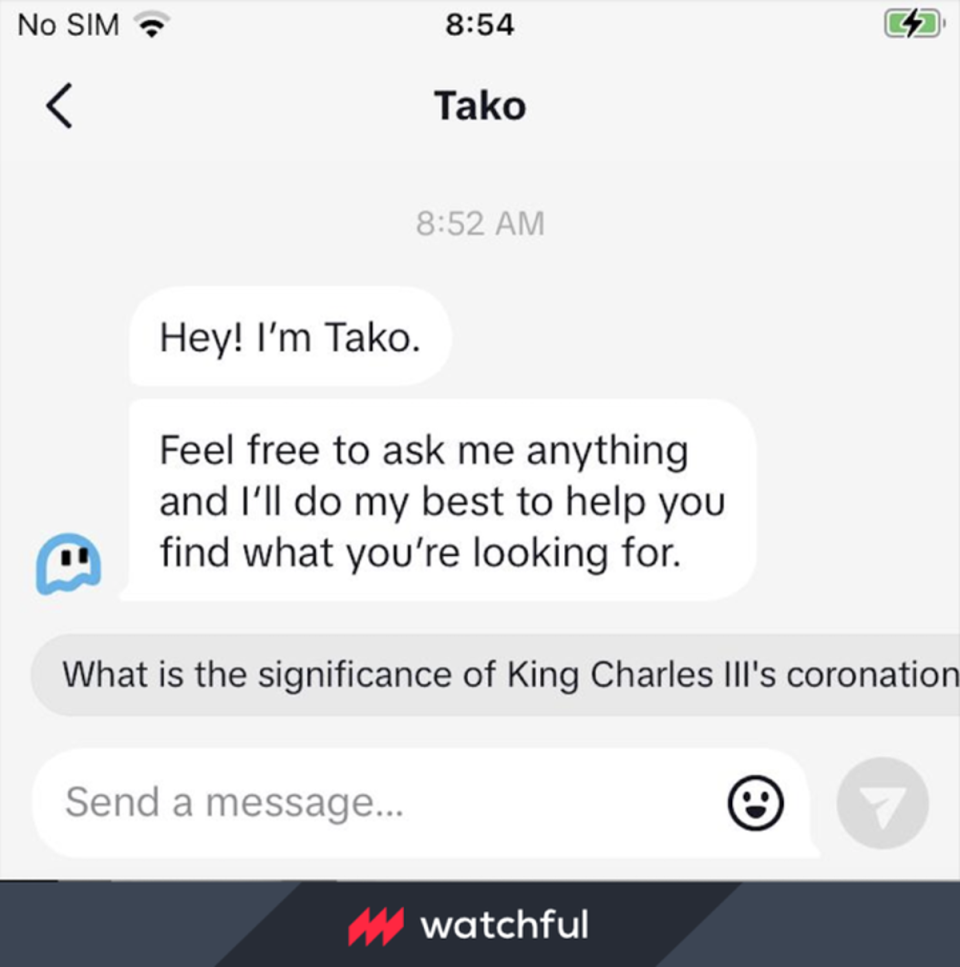TikTok is testing an AI chatbot that answers questions with videos

AI chatbots are seemingly everywhere. Even if you haven’t sampled OpenAI’s pioneering ChatGPT, you may have come across one of its dupes on Snapchat, Microsoft’s Bing, Discord, or Duolingo.
Now, TikTok is jumping on the chatbot bandwagon with its own AI assistant called “Tako”.
Like its predecessors, Tako can generate human-sounding responses to your questions. This being TikTok, it can also recommend videos and content creators based on your queries and the clips you’ve previously watched.
The video app is testing out the new feature on users in the Philippines, according to Reuters.
Tako could become a powerful tool for TikTok. The app is already a defacto search engine in the hands of its youthful user base, who use it to scour information on everything from beauty products to restaurants. Unlike Google — which is also in the process of adding AI-powered responses to its search engine — TikTok provides results in the form of clips created by humans, instead of nondescript websites.
Plugging a chatbot into its massive video database could help the company learn even more about its users’ habits. This should help it to further fine-tune its addictive algorithm to their tastes. However, it also risks rankling its user base if it’s too forceful with its implementation — as Snapchat recently learned with the controversial rollout of its “My AI” chatbot.

During the trial phase, Tako can be found on the right side of the video screen on TikTok. Its ghost-like icon is placed prominently above the other buttons that let you interact with clips.
For the time being, it seems like you can only type to message the bot. By comparison, both ChatGPT and Bing allow you to speak to them using your voice, much like you would with digital assistants such as Alexa and Siri.
TikTok filed a trademark for the tech in the US in April, in which it described it as a “computer software for facilitating interaction and communication between humans and AI”. Possibly hinting at its future capabilities, the filing also said it “could be used for the artificial production of human speech and text”.

Other companies, including Spotify, are already using generative AI to mimic human voices. At the same time, record companies are battling the rise of deepfake music that sounds like it was sung by the likes of The Weeknd or Drake, among other artists.
TikTok is a hive of musical activity, with its users soundtracking their clips with both new and classic songs. It is also grappling with the disruption wrought by the viral success of generative AI. This year, TikTok has developed visual features that incorporate the tech, while clamping down on some forms of content generated, or altered, using AI.
TikTok confirmed the chatbot test on Thursday. “We’re in the early stages of exploring chatbot tools with a limited test of Tako with select users in the Philippines. Tako is an AI-powered tool to help with search and discovery on TikTok,” the company tweeted.
The big question is whether Tako is basically ChatGPT in new clothes. Based on TikTok’s statement, that may well be the case.
“Tako is powered by a third-party chat assistant and is designed to help make it easier to discover entertaining and inspiring content on TikTok,” the company added on Twitter.
Notably, ChatGPT allows developers to create tools using its GPT 3.5 large-language model in return for a fee. The white-label service has helped it to become the brains for a raft of copycat chatbots, with TikTok’s Tako possibly the latest clone to join their ranks.

 Yahoo News
Yahoo News 
